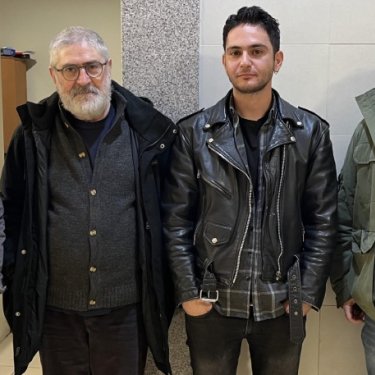Türkiye must stop using its terrorism law to silence journalists

Reporters Without Borders (RSF) calls the Turkish authorities to stop misusing terrorism legislation to silence media personnel and, in particular, to drop all proceedings against a journalist who has just spent ten days in prison for supposedly “exposing” a prosecutor to a “terrorist threat” by reporting corruption allegations. Some 20 other journalists have been tried or are currently being prosecuted on similar charges.
A reporter for the Gercek Gundem (“Real Agenda”) news website, Furkan Karabay was released under judicial control on 8 January, ten days after his arrest on 29 December on a charge of “exposing a counter-terrorist agent to the threat of terrorist organisations” in a story published two days earlier.
Headlined “Bribery crisis in mafia case exposed in court records,” Karabay’s story simply quoted allegations made during a public hearing in which a prosecutor was accused of taking bribes. Karabay, who is currently awaiting formal indictment, is facing up to three years in prison on this charge.
Around 20 journalists are or have been prosecuted under the same article as Karabay, namely article 6 of Türkiye’s terrorism law in 2023. Like article 7 paragraph 2 of the same law, on ‘‘terrorism propaganda’’, this provision – which is supposed to protect “counter-terrorist agents” who seem to be defined very broadly – is being used above all to gag journalists.
To date, nine acquittals and two convictions have been handed down – not all of which are yet final, as proceedings are still ongoing in six of these cases – and eight six other journalists are awaiting an initial ruling.
“After article 7 paragraph 2 of the terrorism law, it is now also article 6 that the Turkish political and judicial authorities are repeatedly using to silence journalists and prevent them from drawing attention to the corruption cases that have, inter alia, shaken the judiciary in recent months. Given the manifestly arbitrary nature of this legislation, it is reassuring to see that some courts have been unable to do anything other than acquit the journalists being tried. This law’s misuse against journalists must now end.”
Erol Onderoglu, RSF’s Türkiye representative.
Of 20 prosecuted, two convicted, nine acquitted
Of the 20 investigative reporters and columnists charged under this article in 2023, nine have been acquitted. They include Mesopotamia Agency reporter Firat Can Arslan, who spent 100 days in Sincan prison, in the capital, Ankara, before finally being acquitted on 31 October. His crime was to have reported that a couple of judges, who had covered the same case of many Kurdish journalists being jailed in Diyarbakir, had been assigned to a new location.
Tuncay Özdamar, a German journalist of Turkish origin working for the German radio station WDR Cosmo, was acquitted following a judicial investigation into posts he shared on X that were suspected of “targeting a prosecutor.” After spending 14 hours in police custody on 30 September, he was taken to Ankara airport and put on a flight to Germany. The Ankara prosecutor’s office finally recognised in mid-December that the suspicions were baseless.
Four journalists with the daily newspaper Cumhuriyet (“Republic”) – Hazal Ocak, Olcay Büyüktaş Akça, İpek Özbey and Vedat Arık – were acquitted by a court of first instance but the prosecution has appealed. They were tried simply for reporting that an “illegal” annex was being built at the Istanbul home of Fahrettin Altun, President Erdogan’s head of communications.
MA’s Ferhat Celik and Jiyan TV’s Idris Yayla are so far the only journalists to have been convicted under article 6 of the terrorism law. A court in Van province sentenced these two Kurdish journalists on 4 May to 15 months in prison for criticising the fact that the same prosecutor was handling the alleged torture of two village residents and the prosecution of journalists arrested for covering the torture story. An appeal court upheld Celik and Yayla’s conviction in November but, pending the outcome of an appeal to Türkiye’s court of cassation in Ankara, the country’s highest appeal court, neither is currently detained.
The many other journalists currently being prosecuted include Ismail Saymaz, a columnist for the daily Sözcü (“Spokesperson”), who is expected to receive a verdict on 23 January, and Mansur Celik and Ayca Soylemez, journalists with the ANKA news agency and the Bianet.org news site, who are being prosecuted for criticising judges.
